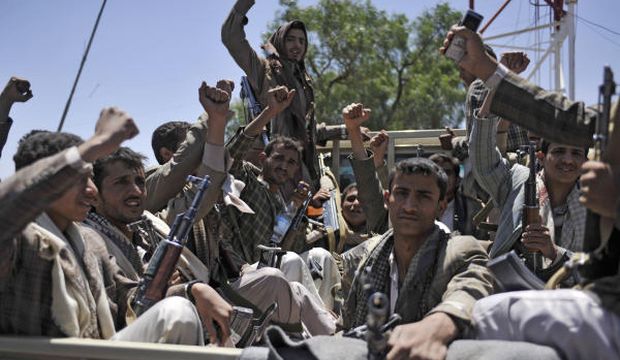Because the United Nations in its modern era has signed more agreements than it has implemented, and because the international organization has been more concerned about working out details on paper rather than coming up with realistic solutions, another episode in a series of UN-sponsored talks is about to kick off in Geneva. But this time the situation in Yemen will take center stage. The talks are to be held despite the fact that the Houthi rebels, along with Yemen’s toppled former president and their ally Ali Abdullah Saleh, are under siege on military, political and diplomatic levels. The UN has decided to all of a sudden throw a lifeline to the Houthis and Saleh who have both neglected all international laws and diplomatic norms and instead insisted on violating them with intransigence. It is as if the Geneva talks are another way for the UN to drag out the crisis in Yemen, rather than a way to resolve it.
The impression that the highest UN body is only concerned about signing deals on paper has not come from the subsequent void. It is a reflection of the policies of the international organization that sponsored and cheered on the Peace and National Partnership Agreement signed by the Houthis and Yemen’s President Abd Rabbuh Mansur Hadi in September. However, the Yemeni people and the rest of the world have realized that the agreement is simply the “genie of the lamp” that helped the Houthis turn against all of their partners and occupy the capital Sana’a, seizing ministries and government institutes by the force of weapons before kidnapping President Hadi and members of his cabinet. Throughout that time the UN remained silent. This passivity shows that the UN has failed twice in Yemen. First, by failing to implement the agreement; and, second, by endorsing an agreement that cannot be implemented in the first place. The UN-sponsored deal acted as a green light that allowed the Houthis to take control of the Yemeni state’s capabilities. Who would believe that the Houthi coup in Yemen was conducted through a UN-sponsored agreement?
The United Nations is yet to answer the nagging question: Why hold new consultative talks, since Resolution 2216 on Yemen has already been issued by the UN Security Council and is based on the outcomes of the National Dialogue Conference and the Gulf Initiative? The international organization is yet to announce the agenda of the talks and the foundations on which they would be based. I have been told by a Gulf diplomat that UN officials have confirmed (in secret) that the agenda of the talks will be based on Resolution 2216. But their shying away from publicly stating this is suspicious and has led to the Houthis threatening to set out conditions for their participation in the talks. Of course, no one expects Hadi’s legitimate government to acquiesce to any UN pressures in Geneva, particularly since it has Resolution 2216 which represents a road map for future solutions and whose implementation is an international demand rather than an option.
No one opposes efforts to seek a political exit from the crisis in Yemen. Moreover, no one wants for the war, caused by the Houthis as admitted by the international community, to continue for long. However, the Geneva talks should not act as a coup against all the political and international agreements binding on all factions in Yemen. The forthcoming Geneva talks thus seem mysterious and raise questions more than provide answers. Would the Geneva talks be a continuation of the Houthi coup that the Peace and National Partnership Agreement started? Or will the talks provide a cover for stripping Hadi of his legitimacy? The Geneva talks will happen, and the little credibility the UN has left is now very much at stake.
